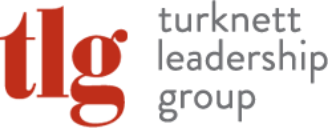
There is a growing expectation amongst employees today that organizations are solely responsible for providing development opportunities. While any company needs to emphasize professional development and career growth, it’s not always the reality. Some companies lack the resources, while others might choose not to. Employees shouldn’t depend on their employer for their development and can take matters into their own hands. We asked our team of experts how they prioritize their development, and, how employees can more proactively pursue growth opportunities.
Answers From the Experts:
 Lyn Turknett, Co-founder and Co-chair, TLG
Lyn Turknett, Co-founder and Co-chair, TLG
As a professional coach, in what ways do you keep up with certifications, training, and industry changes?
“Keeping up” – and continuing to learn – is probably my favorite part of any job. I think I come by it honestly. I’ve told the story before of my mother, who was born in 1906 and was in graduate school and working all the time I was growing up. She was a master of continuous learning just because of her curiosity – she was interested in everything and was a voracious seeker of information and knowledge.
When I was in my early teens she got up every morning at 5:30 to watch a physics program on that new medium – television. I remember rolling my eyes while she tried to explain something she has just learned to my sister and me. It was about tires and friction and mass and we were just trying to get ready for school.I rolled my eyes then, but I think I got the curiosity gene. I don’t have a professional license, but I’m lucky to be married to someone who does. Bob Turknett, my partner in business and life, is a licensed psychologist, and through the years has had to meet continuing education requirements to maintain his. I’ve gone to most of the conferences and special educational sessions he’s attended – and registered as an attendee.
To read Lyn’s full article, click here!
How can employees be more proactive in identifying and independently pursuing their own opportunities for growth?
Bob and I had an Uber driver some years ago – I think 2016 – who was incredibly excited by his company’s recent announcement – by the CEO – that while the company could no longer guarantee a job, they would provide access to continuous learning so that everyone could keep their skills and knowledge up to date. Uber was a side gig for our driver; his full-time job was as an AT&T technician, and his CEO at the time was Randall Stevenson.
Our driver was clearly proactive and committed to continuous learning, but I remember thinking at the time there was more to the story. Our driver was African American, and Randall Stevenson had just sent out an open letter regarding racial tensions calling for courage and dialogue, not simply tolerance. I remember thinking at the time that the “you are responsible for your own career” message goes over much better when top leaders inspire connection and trust.
In the continuous learning spirit of our Uber driver, I decided to explore a new technology – ChatGPT – and asked how can employees be more proactive in identifying and independently pursuing their own opportunities for growth. The answers are pretty darn good! Here are a few ways you can pursue self-development.
- Set goals: Start by setting clear and specific goals for your personal and professional development. This will give you direction and focus for your efforts.
- Identify your strengths and weaknesses: Take the time to reflect on your strengths and weaknesses. Knowing your strengths will help you to identify areas where you can excel, and your weaknesses will help you to identify areas where you need to improve.
- Seek feedback: Ask for feedback from your manager, colleagues, and peers to understand your performance and areas for improvement. Use this feedback to identify areas where you can develop your skills and knowledge.
- Take initiative: Don’t wait for your manager or HR to tell you about development opportunities. Take the initiative to identify opportunities that align with your goals and present them to your manager for discussion.
- Network: Build relationships with people in your industry or profession. Attend industry events, join professional organizations, and participate in online communities. Networking can help you to learn about new opportunities and gain insight into what skills and knowledge are in demand.
- Stay current: Keep up to date with trends and developments in your industry. Read industry publications, attend conferences and webinars, and participate in online forums. This will help you to identify new opportunities for growth and stay relevant in your field.
- Be proactive: Take ownership of your growth and development. Don’t wait for opportunities to come to you; actively seek them out and be willing to put in the time and effort required to achieve your goals.
 Patricia Thompson, Ph.D., Senior Consultant, TLG
Patricia Thompson, Ph.D., Senior Consultant, TLG
As a professional coach, in what ways do you keep up with certifications, training, and industry changes?
To stay up-to-date in my own profession, I try to block out time each week entirely devoted to learning – and I use this time in several ways. First, as a licensed psychologist, I have continuing education requirements. I also regularly partake in workshops to stay honed in my craft. In addition, I am an avid reader and enjoy listening to podcasts. I really love the convenience of podcasts because I can listen to them while I’m doing other things, like running errands, or driving my son to and from school.
I also find I learn a lot when connecting with colleagues. Hearing what’s on their minds and brainstorming is a great way to expose myself to different perspectives. Finally, I learn from my clients. I’m fortunate enough to work with clients from a range of industries, and so I can often pick up on themes within and across industries.
How can employees be more proactive in identifying and independently pursuing their own opportunities for growth?
If you want to develop, you have to commit to making it a priority. You can do this by blocking out time devoted to personal growth efforts and by creating learning-related habits (e.g. reading the news while eating breakfast; taking time at the end of the day to reflect on lessons learned). Once you’ve prioritized your development by blocking out time to support your ongoing growth, here are six practices you could try:
-
- Ask others for advice about areas in which you could grow (using the word “advice” as opposed to “feedback” tends to be associated with receiving guidance that is more helpful and actionable.
-
- Make a list of topics you would like to learn. For example, if you always feel out of your depth in finance discussions, perhaps you could learn more about that. Or if you have always wanted to improve as a leader, you could target specific areas of leadership that might help you (e.g. delegation, influencing, building a high-performing team).
-
- Read books or listen to podcasts (if you can’t find any on your own, you could always ask for recommendations).
-
- Take a course. Whether it is online or in-person, it can be a useful way to expand your knowledge base.
-
- Work with a coach. At TLG, our coaching involves personality testing, a 360 survey, and targeted action-planning to help you to work on your goals.
-
- Keep a leadership journal. As you learn new management approaches or gain insights into your own style, write them down, so that you can refer back to them in the future
 Len Romano, MBA, M.Div, Senior Consultant, TLG
Len Romano, MBA, M.Div, Senior Consultant, TLG
How can employees be more proactive in identifying and independently pursuing their own opportunities for growth?
The best organizations place an emphasis on career development opportunities for their workforce. There are many reasons why this helps the best to stay the best: increase in staff satisfaction, a happy work environment, helps to build “bench strength” for succession planning, and demonstrates a genuine interest in individuals.
BUT, not all organizations have the time or resources to focus on the necessary and important personal growth and development issues.
Here is my advice from early in my career: take matters into your own hands! Straight out of college, I wanted to fast-track my career and the organization knowing I was a newcomer on the scene didn’t feel the time was right to invest in my growth and development. So here is what I did: I used vacation time and my own financial resources to pursue the training/certifications that I needed to move along the career track.
Long story short, at age 33 I earned my first CEO position. Of course, it didn’t happen just because of the career development opportunities that I pursued on my own time. Accomplishments and experience are key to the “next step, ” but the career growth opportunities added credibility to my portfolio.
Here is the bottom line: regardless of whether you work for an organization that cares about your professional development, it is YOUR responsibility to MANAGE your own career – because nobody cares more about YOUR career than you do!
 Robin Mladinich, CPCC, ACC, Senior Consultant, TLG
Robin Mladinich, CPCC, ACC, Senior Consultant, TLG
As a professional coach, in what ways do you keep up with certifications, training, and industry changes?
Every January, I set aside professional development funds for the year, and then decide on how I want to spend that money. It is my favorite part of budgeting and goal setting. I love learning and that probably explains why I spent 20 years in the higher education industry. There were always opportunities to learn something new.
I want to bring my best to my clients and provide them with the latest tools and techniques to help them grow. I look for trends in business and the coaching industry to help me keep up with what is happening and what is important. I am a member of ICF and ICF-Georgia and regularly attend meetings and events. I collaborate with fellow coaches to share best practices.
How can employees be more proactive in identifying and independently pursuing their own opportunities for growth?
Employees should include professional development opportunities in their yearly goals. It is a way to stay fresh and feel invigorated in your career. It helps also to re-skill and be up to date on the latest trends in your industry. Find what interests you and think about how it will help you to be more effective in your role or future role. What are you missing or what skills do you need for that next promotion? How can you recession-proof your career? There are so many development opportunities even if your budget is small. Check out all of the free or nearly-free courses that are offered online through universities, non-profits, and LinkedIn. Alex Auerbach, Ph.D., Senior Consultant, TLG
Alex Auerbach, Ph.D., Senior Consultant, TLG
As a professional coach, in what ways do you keep up with certifications, training, and industry changes?
Since I’m licensed as a psychologist and have a few other certifications to maintain, continuing education is a core part of keeping in good professional standing. But, leaders from any field could leverage this same concept to drive their learning. I try to imagine how my field will develop over the next 2-3 years, and then seek out courses, webinars, and articles that speak to those developments.
How can employees be more proactive in identifying and independently pursuing their own opportunities for growth?
If you want to proactively pursue learning opportunities and chances for your own growth, I am a big fan of looking for places where your current role overlaps with a different field or adjacent specialty. For example, if you’re in management, it may help you to learn more about psychology, coaching, and HR to round out your skill set as you climb the ladder.
 Laurie Arron, Executive Coach and TLG Strategic Partner
Laurie Arron, Executive Coach and TLG Strategic Partner
As a professional coach, in what ways do you keep up with certifications, training, and industry changes?
As a professional executive coach, I keep up with certifications, training, and industry changes in several ways. To begin with, I make sure to attend industry conferences and events, which provide an excellent opportunity to network with other coaches and learn about the latest industry trends and best practices. I also invest time and resources into continuing education programs that offer advanced coaching certifications and training. These programs help me stay up-to-date with the latest coaching techniques, tools, 360 assessments, and methodologies. Lastly, I participate in a high-caliber coaching mastermind where I can exchange ideas and insights with other extraordinary coaches from around the world. I like to review and reflect on my coaching practice to ensure that I am delivering the best possible service to my clients.
How can employees be more proactive in identifying and independently pursuing their own opportunities for growth?
1.) Develop a growth mindset and see challenges as opportunities to learn and develop. This can help them overcome any fear or resistance to pursuing new opportunities.
2.) Set SMART goals: specific, measurable, achievable, relevant, and time-bound goals for their personal and professional growth. These goals should align with their values and interests and be regularly reviewed and updated.
3.) Seek feedback from colleagues, supervisors, and mentors to understand their strengths and areas for improvement. This helps them identify areas where they need to grow and develop.
4.) Be proactive and seek out opportunities for growth, such as attending training programs, taking on new challenges, and pursuing additional responsibilities. Also, be open to feedback and constructive criticism, and be willing to take action to improve their skills and knowledge.
5.) Build a network of mentors and colleagues who can support their growth and development. Seek out opportunities to learn from others and share their own knowledge and expertise.
 Vicki Abelson, ACC, Senior Consultant, TLG
Vicki Abelson, ACC, Senior Consultant, TLG
As a professional coach, in what ways do you keep up with certifications, training, and industry changes?
This morning I had a call with a coach, my own coach. One of the most important things I do in furthering my own professional and personal development is regular time with a coach. The value is seeing my own blind spots and identifying growth opportunities. It is a safe space to explore what is going on in my life and where I can shift and pivot so that I can show up as the best version of myself. It can be challenging to make time for this, but I never regret my coaching sessions. I always come away feeling clearer and more confident.
In order to further my skills as a coach and leadership consultant I also make time for reading (whether it’s a physical book or an audiobook), participate in continuing education classes, and network with other professionals. Learning keeps me motivated and engaged in the work that I do. I am always excited to share something I learned with a client or colleague.
 Tim Huff, VP of Leadership Development, TLG
Tim Huff, VP of Leadership Development, TLG
As a professional coach, in what ways do you keep up with certifications, training, and industry changes?
Fortunately, in the executive coaching industry, there are many opportunities for continuing education and expanding our skills. One area of particular interest for me is assessments. I truly enjoy learning about the various tools in the marketplace that help users gain different kinds of insights to deepen our own self-awareness and help our clients do the same. Just recently, I completed a training course for an assessment called the Judgement Index, which provides a very interesting perspective on one’s value systems and how those values impact their judgement in both the work side and the self-side of their lives. The course was a fascinating learning experience for me, and the assessment will be a great addition to the Turknett Leadership Group’s library of tools.
I enjoy keeping up with some of the trends in the coaching industry and how long standing and respected coaching certification agencies are shaping their offerings to reflect the changing dynamics of the leadership development marketplace.
How can employees be more proactive in identifying and independently pursuing their own opportunities for growth?
Several years ago, I overheard a friend of mine say, “you may love your job, but your job won’t love you back.” The implication is that the safety of our employment is always subject to many factors outside of our control, regardless of how well we perform our jobs, how long we’ve been at a company, or any other factor we might think provides a safety net for us. We are all subject to being released from the organizations that employ us, and it is up to us to ensure we continually remain employable if that situation happens to us. One of the best ways to do that is to always be engaged in growing your skills in the areas that are most relevant to the industry we’re in. This is especially true for some industries like technology, where changes are happening so fast, professionals need to be at least routinely aware of the changes or run the risk of falling behind and eventually having skills that become irrelevant to their employers. Here are some suggestions to stay informed and up to date, especially while still employed. First, try to attend at least one industry conference each year. Although there are many money-trap kinds of conferences that are way more fluff than valuable content, there are many conferences that are extremely relevant for every industry and full of great content that can help you stay on top of your game. Bonus points for being a presenter at one of these conferences! Second, subscribe to at least two industry-specific journal publications, newsletters, blogs, etc. The most relevant and valuable ones might have a subscription fee associated with them (a good indicator of worthwhile content), but the cost can be worth it. Bonus points for being published in one of these channels! Third, follow and engage with at least three top influencers in your industry on LinkedIn, especially those in your immediate community. This is a great way to be “seen” in your industry. We may sometimes feel intimidated to make a connection or initiate a conversation with those very top people, but often just making an attempt can be successful!Explore the rest of our team!

